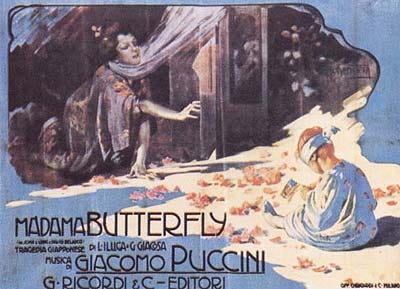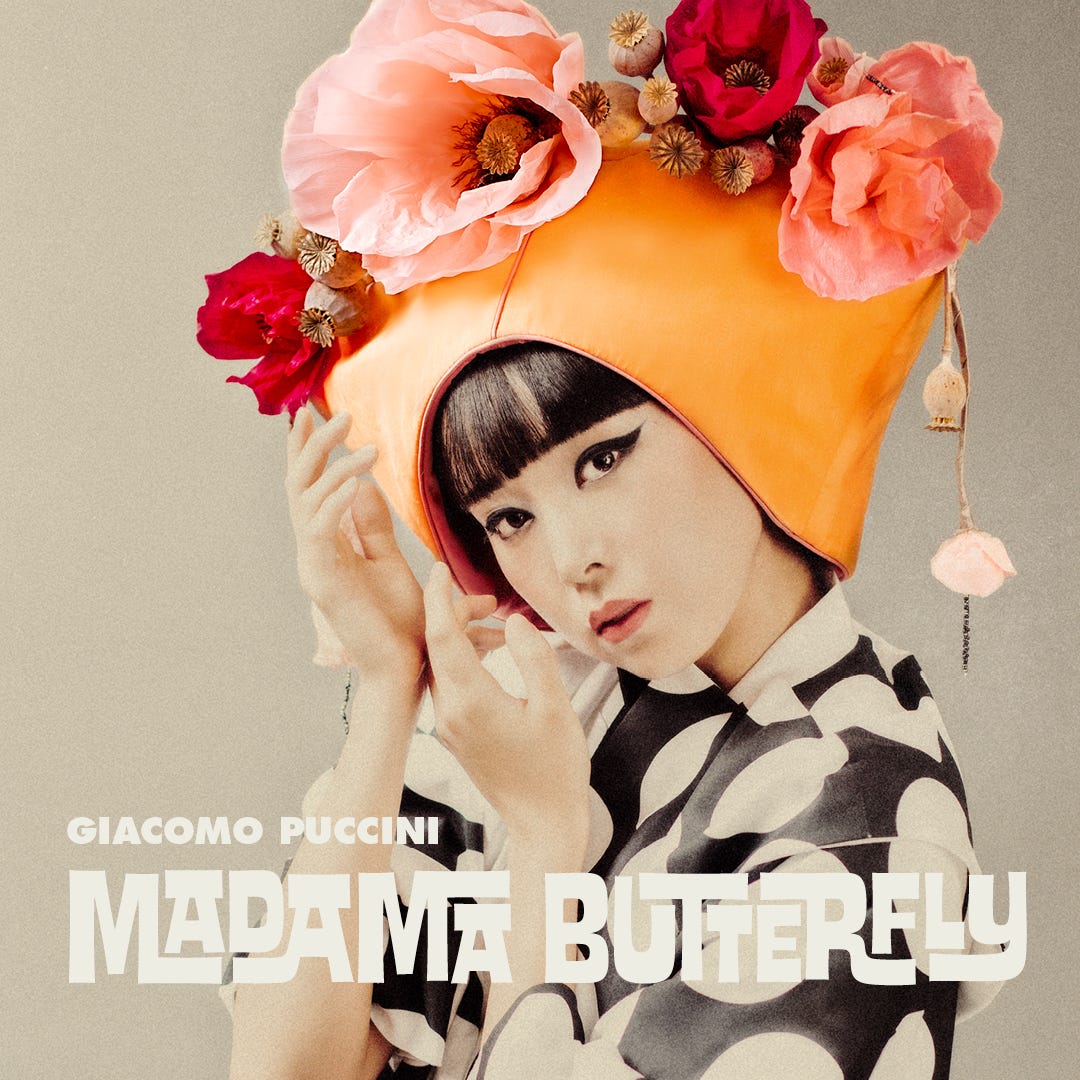Madama Butterfly: A Reflection on Puccini’s Masterpiece
A Story of Love, Betrayal, and Cultural Collision
By Stanis Smith
The plot in a single sentence: American naval officer goes to Japan, marries poverty-stricken local girl, dumps her to go home, returns years later with American wife to claim his son.
Madama Butterfly, by the composer Giacomo Puccini, is one of the most beloved operas performed today. Judging by our ticket sales, which are breaking all records, its return to the Vancouver Opera stage after many years is much anticipated.
Surprisingly for an opera that is enthusiastically appreciated by modern audiences, Madama Butterfly had its detractors at its premiere and it has its detractors today. Some brief context may help to understand both ends of that spectrum.
For those unfamiliar with the work, this insight video from the Royal Opera House provides a powerful introduction to the emotional weight of Madama Butterfly:
In the middle of the 19th century Japan opened up to the West after two centuries of isolation, changing the course of European art and music in the process. European artists and composers were fascinated by all things Japanese, which were often conflated with all things Asian. In the visual arts the Impressionists and Post-Impressionists used Japanese and Asian aesthetic approaches to remarkable effect. In music, composers including Puccini adopted Japanese and Asian elements such as unconventional instruments (bells, gongs and percussion) and the use of the pentatonic scale (think of playing only the black keys on a piano):
Madama Butterfly was premiered in 1904 at La Scala, Milan, an opera house famous for its uncompromising and occasionally brutal audience reactions.

At the premiere the audience hissed and jeered. Remarkably, Puccini didn’t give up, made significant revisions, and at its next performance a few months later it was a great success. It’s difficult for us to understand why the La Scala audience was so hostile; most likely it was their lack of familiarity with the new musical language that Puccini had invented, a language that we now take for granted.

In recent years Butterfly has attracted a different type of criticism from those who feel offended by its racial and cultural stereotypes, depictions of colonial power dynamics, and appropriation of musical styles. In the words of one critic: “Puccini’s Japan is seen as a tragicomic Third World country … with quaint little customs”.
The key question is whether Puccini was using an “Asian” plot and “Asian” musical motifs as a superficial way to make an “exotic” opera, or whether he was genuinely interested in telling a compassionate story about a clash of cultures using a musical language that blended his Italian heritage with that of another culture.
While Puccini may arguably have fallen short of modern ethical expectations, in my opinion the sincerity of his approach speaks for itself when it comes to both the plot and the music. The subject-matter of Madama Butterfly is remarkably enlightened for its time, and the opera is damning in its depiction of a victim of what today we would call “child sex-tourism”. Musically, there is no doubt that Puccini’s sympathies lie with the victim, more on that later.
For those unfamiliar with the plot here it is in brief: An American naval officer named Pinkerton travels to Japan, marries Cio-Cio-San, a poverty-stricken 15-year-old Japanese girl, dumps her to return to his country, then returns a few years later with his American wife to claim his son.
The tragedy of Madama Butterfly is Cio-Cio-San’s naïve love for Pinkerton, her abandonment by him, her misguided belief in his bona fides, and her anguished decision when she realizes what his intentions are. As a plot, it is both compelling and current. Musically the opera has many unforgettable moments: the appearance of Pinkerton ironically punctuated by the Stars & Stripes, the dreamy chorus of Butterfly and her friends, the touching Pinkerton-Butterfly duet, Butterfly’s heartfelt forecast of Pinkerton’s return, the trio during which Pinkerton and locals wrestle with the shocking dilemma of telling Butterfly the truth, and then Butterfly’s tragic death.
Puccini’s music is passionately and unambiguously on the side of Cio-Cio-San, and his natural gift for glorious, memorable melodies coupled with the tragically relatable plot of Madama Butterfly makes for a great night at the opera, so get your tickets soon, before they sell out!
Vancouver Opera closes the season with Puccini’s Madama Butterfly – a timeless tale of love and loss. Featuring Tokyo-born soprano Yasko Sato in her Canadian debut as Cio-Cio-San. 🦋
Stunning visuals, transcendent melodies, and a timeless tale of love and loss make Madama a must-see season finale! Buy tickets now. 👇
Get tickets 🎟️
Performance Dates:
Saturday, Apr 26 | 7:30PM
Sunday, Apr 27 | 2:00PM
Thursday, May 1 | 7:30PM
Saturday, May 3 | 7:30PM
Sunday, May 4 | 2:00PM
Architect by day, musician by night, Stanis Smith’s professional career has included leading major architectural firms, with a particular specialty in airport design. His musical career includes being a clarinettist in orchestras and chamber ensembles. He is on the board of Vancouver Opera and the Rick Hansen Foundation, and previously was on the boards of the Vancouver Symphony and Friends of Chamber Music.






